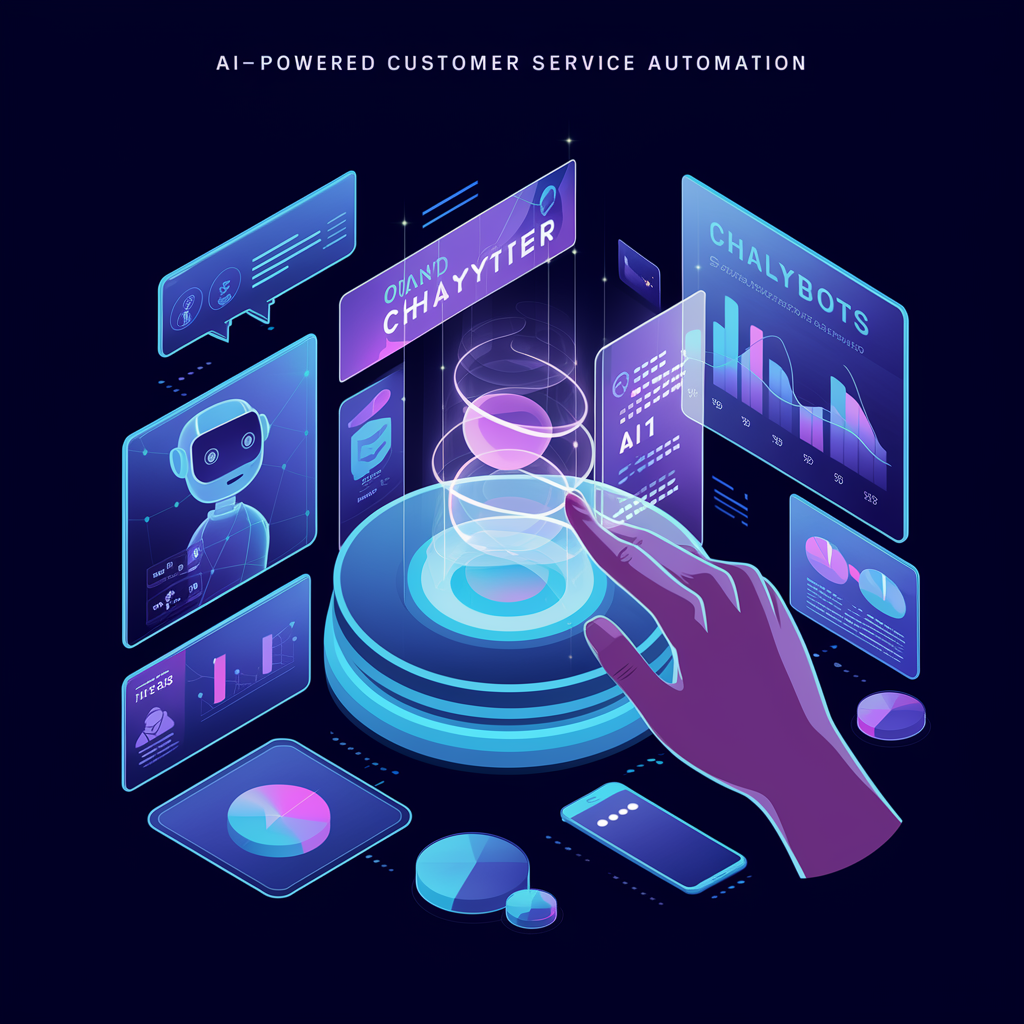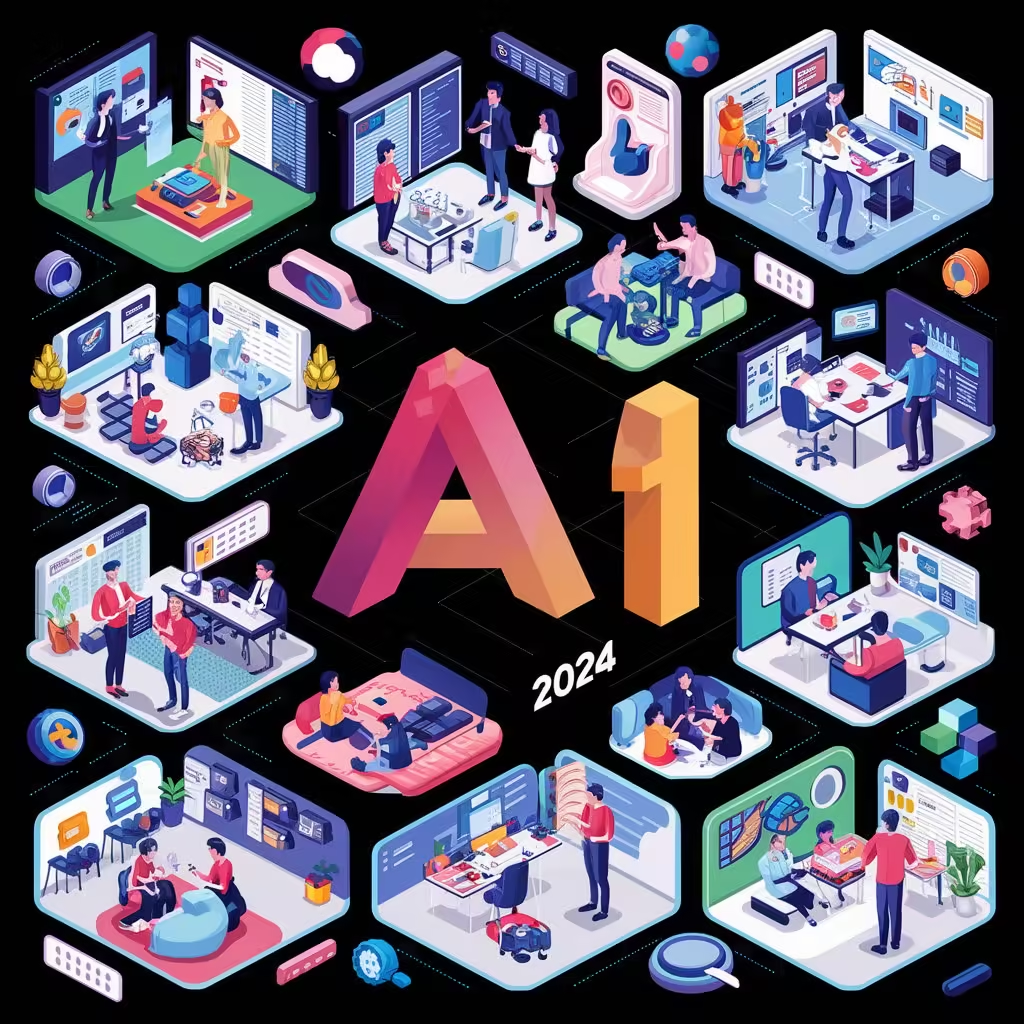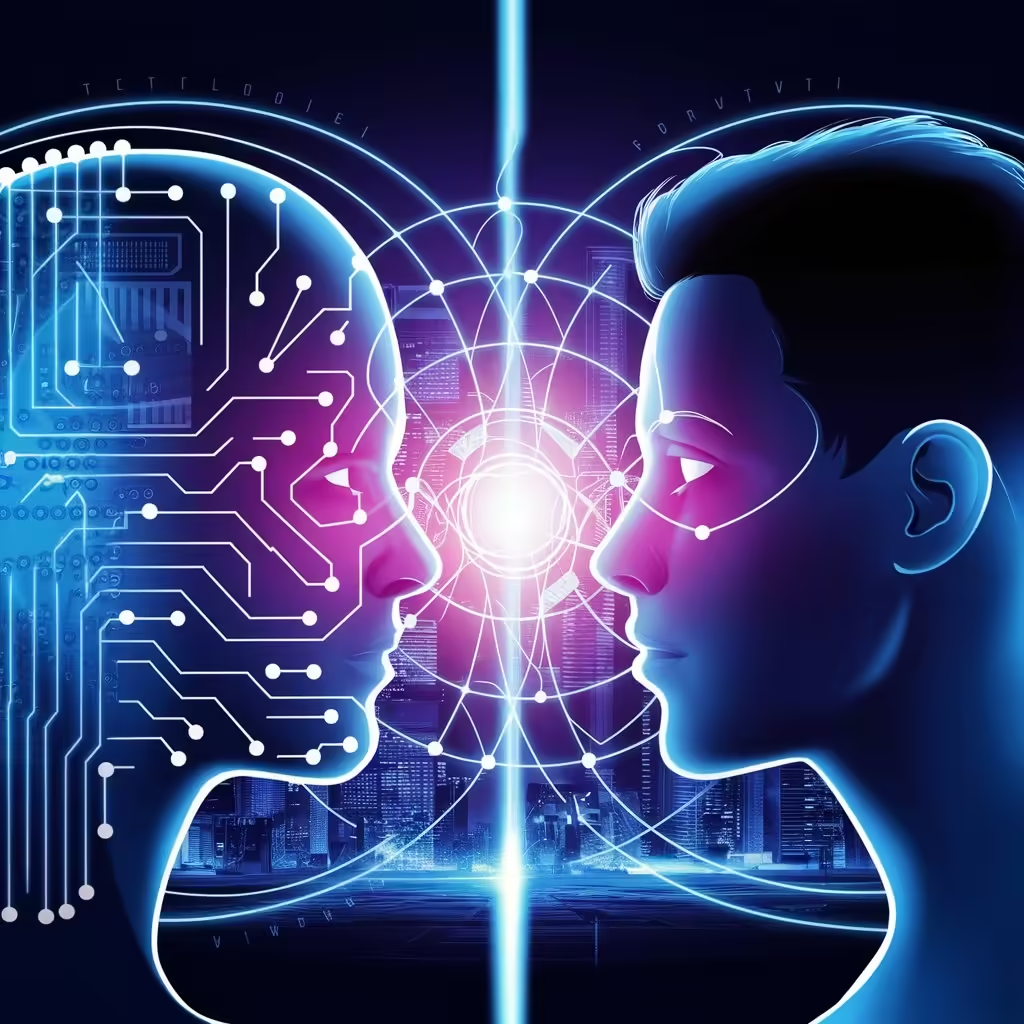Introduction
In today’s fast-paced digital landscape, providing exceptional customer service is no longer just a nice-to-have – it’s a critical differentiator that can make or break a business. As consumer expectations continue to soar, companies are turning to artificial intelligence (AI) to streamline their customer service operations, boost efficiency, and deliver personalized experiences at scale.
This blog post delves into the world of AI customer service automation, exploring the top 10 cutting-edge tools that are revolutionizing the industry in 2024. Whether you’re a startup looking to punch above your weight or an established enterprise aiming to stay ahead of the curve, these AI-powered solutions can help you transform your customer service from a cost center into a powerful engine for growth and customer loyalty.
The Rise of AI in Customer Service
Before we dive into the specific tools, let’s take a moment to understand why AI has become such a game-changer in the customer service realm:
- 24/7 Availability: AI-powered chatbots and virtual assistants can provide round-the-clock support, ensuring that customers can get help whenever they need it.
- Instant Responses: AI systems can process and respond to queries in milliseconds, dramatically reducing wait times and improving customer satisfaction.
- Scalability: Unlike human agents, AI can handle an virtually unlimited number of simultaneous interactions, making it ideal for businesses experiencing rapid growth or seasonal spikes in demand.
- Consistency: AI ensures that every customer receives the same high-quality, on-brand experience, regardless of the time of day or volume of inquiries.
- Data-Driven Insights: AI tools can analyze vast amounts of customer interaction data to uncover trends, preferences, and pain points, enabling businesses to continuously improve their service offerings.
- Cost-Efficiency: By automating routine tasks and inquiries, AI frees up human agents to focus on more complex, high-value interactions, ultimately reducing operational costs.
With these benefits in mind, let’s explore the top 10 AI services that are leading the charge in customer service automation.
Top 10 AI Customer Service Automation Tools
1. Zendesk Answer Bot
Zendesk’s Answer Bot is a prime example of how AI can seamlessly integrate into existing customer service workflows. Powered by machine learning, this intelligent assistant works alongside your human agents to provide instant, accurate responses to common customer queries.
Key Features:
- Natural language processing for understanding customer intent
- Integration with Zendesk’s knowledge base for accurate answers
- Continuous learning from customer interactions
- Seamless handoff to human agents for complex issues
Pricing: Starts at $19/agent/month (when billed annually)
2. IBM Watson Assistant
IBM Watson Assistant is a powerhouse in the world of AI-driven customer service. Leveraging IBM’s decades of experience in artificial intelligence, this tool offers sophisticated natural language understanding and dialogue management capabilities.
Key Features:
- Advanced intent recognition and entity extraction
- Multi-channel deployment (web, mobile, messaging platforms)
- Integration with existing backend systems
- Robust analytics and reporting
Pricing: Custom pricing based on usage and features
3. Intercom
Intercom has made a name for itself by offering a comprehensive customer communication platform, and its AI-powered features are no exception. The platform’s chatbots and automated workflows help businesses engage customers at scale while maintaining a personal touch.
Key Features:
- Custom chatbot building with no-code interface
- Proactive messaging based on user behavior
- A/B testing for bot conversations
- Integration with CRM and other business tools
Pricing: Starts at $74/month for small businesses
4. Salesforce Einstein
As part of the Salesforce ecosystem, Einstein brings the power of AI to customer relationship management. Its predictive and prescriptive capabilities help businesses anticipate customer needs and provide proactive support.
Key Features:
- AI-powered case classification and routing
- Predictive service analytics
- Automated task prioritization for agents
- Integration with Salesforce CRM data
Pricing: Custom pricing based on Salesforce edition and features
5. LivePerson’s Conversational AI
LivePerson has been a pioneer in digital customer engagement, and its Conversational AI platform takes things to the next level. By combining natural language understanding with deep learning, LivePerson helps businesses create truly intelligent conversational experiences.
Key Features:
- Intent-based routing to the best human or AI agent
- Real-time sentiment analysis
- Conversational design tools for non-technical users
- Omnichannel deployment across messaging apps and voice
Pricing: Custom pricing based on usage and features
6. Drift
Drift’s conversational marketing platform has expanded into customer service automation with impressive results. Their AI-powered chatbots are designed to qualify leads, book meetings, and provide instant support, all while maintaining a conversational, human-like tone.
Key Features:
- Custom chatbot playbooks for different scenarios
- Integration with calendar systems for scheduling
- A/B testing for bot conversations
- Robust analytics and ROI tracking
Pricing: Starts at $40/month for small teams
7. Ada
Ada is a no-code conversational AI platform that empowers businesses to build and launch their own customized chatbots. With a focus on ease of use and rapid deployment, Ada is an excellent choice for companies looking to quickly implement AI-powered customer service.
Key Features:
- Drag-and-drop bot builder
- Multilingual support
- Easy integration with existing knowledge bases
- Advanced analytics and reporting
Pricing: Custom pricing based on usage and features
8. Aivo
Aivo’s AI-powered customer service solution stands out for its focus on conversational experiences across multiple channels. Their AgentBot uses natural language processing to understand customer intent and provide contextually relevant responses.
Key Features:
- Omnichannel support (web, WhatsApp, Facebook Messenger, etc.)
- Integration with human agent platforms
- Real-time analytics dashboard
- Easy-to-use bot training interface
Pricing: Custom pricing based on business needs
9. Cognigy.AI
Cognigy.AI offers a versatile conversational AI platform that can be used for both customer service and employee support. Their advanced natural language understanding capabilities and flexible integration options make it a powerful choice for enterprises looking to implement AI across various touchpoints.
Key Features:
- Visual flow editor for conversation design
- Multi-language and multi-channel support
- Integration with RPA (Robotic Process Automation) tools
- On-premise deployment option for enhanced security
Pricing: Custom pricing based on usage and deployment options
10. Ultimate.ai
Rounding out our list is Ultimate.ai, a platform that combines powerful AI capabilities with an intuitive user interface. Their focus on creating human-like conversations sets them apart in the crowded AI customer service landscape.
Key Features:
- AI-powered intent detection and entity extraction
- Seamless handoff between AI and human agents
- Multilingual support with automatic language detection
- Integration with popular CRM and helpdesk systems
Pricing: Custom pricing based on business size and needs
Key Features to Look for in AI Customer Service Tools
When evaluating AI-powered customer service solutions, keep an eye out for these essential features:
- Natural Language Processing (NLP): The ability to understand and interpret human language accurately is crucial for providing relevant and helpful responses.
- Machine Learning Capabilities: Look for systems that can learn and improve over time based on customer interactions and feedback.
- Omnichannel Support: Ensure the AI can seamlessly integrate across various customer touchpoints, including web, mobile, social media, and messaging platforms.
- Easy Integration: The tool should easily connect with your existing CRM, helpdesk, and other business systems to provide a unified customer view.
- Customization Options: Look for platforms that allow you to tailor the AI’s responses and behaviors to match your brand voice and specific use cases.
- Analytics and Reporting: Robust analytics capabilities are essential for measuring the AI’s performance and identifying areas for improvement.
- Human Agent Collaboration: The best AI tools work alongside human agents, providing support and seamlessly handing off complex issues when necessary.
- Scalability: Ensure the platform can handle your current volume of customer interactions and scale as your business grows.
Implementing AI in Your Customer Service Strategy
While AI tools offer tremendous potential, successful implementation requires careful planning and execution. Here are some key steps to consider:
- Define Clear Objectives: Identify specific goals for your AI implementation, such as reducing response times, increasing first-contact resolution rates, or improving customer satisfaction scores.
- Start Small and Iterate: Begin with a pilot project focused on automating simple, high-volume inquiries. Use the insights gained to refine and expand your AI implementation gradually.
- Invest in Training: Ensure your customer service team understands how to work alongside AI tools effectively. This includes knowing when and how to intervene in AI-led conversations.
- Maintain a Human Touch: While AI can handle many interactions, it’s essential to preserve the option for customers to speak with human agents when needed.
- Continuously Monitor and Optimize: Regularly review AI performance metrics and customer feedback to identify areas for improvement and refine your automation strategies.
- Prioritize Data Security: Ensure that your chosen AI solution complies with relevant data protection regulations and implements robust security measures to protect customer information.
The Future of AI in Customer Service
As we look ahead, several exciting trends are shaping the future of AI in customer service:
- Emotion AI: Advanced sentiment analysis and emotion recognition capabilities will enable AI systems to respond more empathetically to customer needs.
- Predictive Support: AI will increasingly anticipate customer issues before they arise, enabling proactive outreach and problem resolution.
- Voice AI: As voice-based interactions become more prevalent, AI systems will need to excel at understanding and responding to spoken language across various accents and dialects.
- Augmented Reality (AR) Integration: AI-powered customer service tools will leverage AR technology to provide visual guidance and support for complex products or troubleshooting processes.
- Hyper-Personalization: By analyzing vast amounts of customer data, AI will enable truly personalized service experiences tailored to individual preferences and behaviors.
Conclusion
AI-powered customer service automation is no longer a futuristic concept – it’s a present-day reality that’s transforming how businesses interact with their customers. By leveraging the right AI tools and implementing them strategically, companies can dramatically improve their customer service efficiency, quality, and scalability.
As you explore the options presented in this article, remember that the best AI solution for your business will depend on your specific needs, budget, and existing technology stack. Take the time to evaluate multiple options, run pilot projects, and gather feedback from both customers and employees before making a full-scale commitment.
By embracing AI in your customer service operations, you’re not just keeping up with the competition – you’re positioning your business to deliver exceptional experiences that will delight customers and drive long-term loyalty in the AI-driven future of customer service.
AIInDepth.com: Your go-to source for insights and trends in AI and technology.



